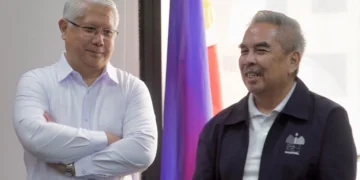Dealing with a corrupt government bureaucracy has been the bane of the country’s private sector for decades. Add to that an education system out of sync with the Philippines’ needs for the short to mid-term.
The Management Association of the Philippines (MAP) cited as their top concerns corruption and education, along with local government units (LGUs).
Speaking at the association’s first meeting for the year, MAP President Alfredo Panlilio said a survey conducted among their members in the fourth quarter of last year pointed to corruption as the top concerns of businesses in 2025.
All the other cited top concerns are one way or another related to the problem, which has been endemic in the country at least since the post-World War II years.
The other top concerns aside from the aforementioned include the economy in general, the ease of doing business, cybersecurity, and climate change.
The concerns in dealing with LGUs involve the delays in the issuance of licenses and permits to undertake projects, according to Panlilio. These include projects in the power and telecommunications sectors.
The MAP will also continue its efforts to urge both the government and private sectors to pursue relevant education, health, and wellness programs, especially for the youth, he said.
Stated the MAP head: “The objective is for the youth to become productive members of society, with competitive skills and capacity that will ensure a progressive economy of the future.”
Panlilio said that to address these concerns, this year’s board of directors has set four main thrusts to guide the MAP’s activities – member engagement; country competitiveness; ESG (environment, social and governance) and shared prosperity; and investing in youth.
To address corruption and ease of doing business, “we will continue to participate actively in the programs of the Anti-Red Tape Authority or ARTA,” he also said.
The MAP’s general membership meetings will cover issues that are relevant and beneficial to members and the economy, said Panlilio.
Regarding the country’s competitiveness, the MAP head said they will continue to push for policy reforms that will eradicate corruption, improve the ease of doing business, ensure food security through agricultural productivity, and sustain an enabling business environment for both local and foreign investors.
Panlilio said their aspiration “is to attract greater and more diverse job-creating investments for more Filipinos to be gainfully employed.” When it comes to the ESG and shared prosperity goal, the MAP will continue to promote more sustainable practices, ethical leadership, and inclusive growth to create long-term value, not just for members but all stakeholders.
“We will continue pushing for the discourse and activities to champion responsible business, uplift communities, and contribute to a resilient and equitable future for the Philippines,” he said.
For now, the MAP will continue its campaign against malnutrition and child stunting in line with the thrust to invest in the country’s youth.
Over and above its four main thrusts, Panlilio said the MAP will pursue other advocacies and programs aimed at helping businesses adapt to developments in the local and global landscapes.




























